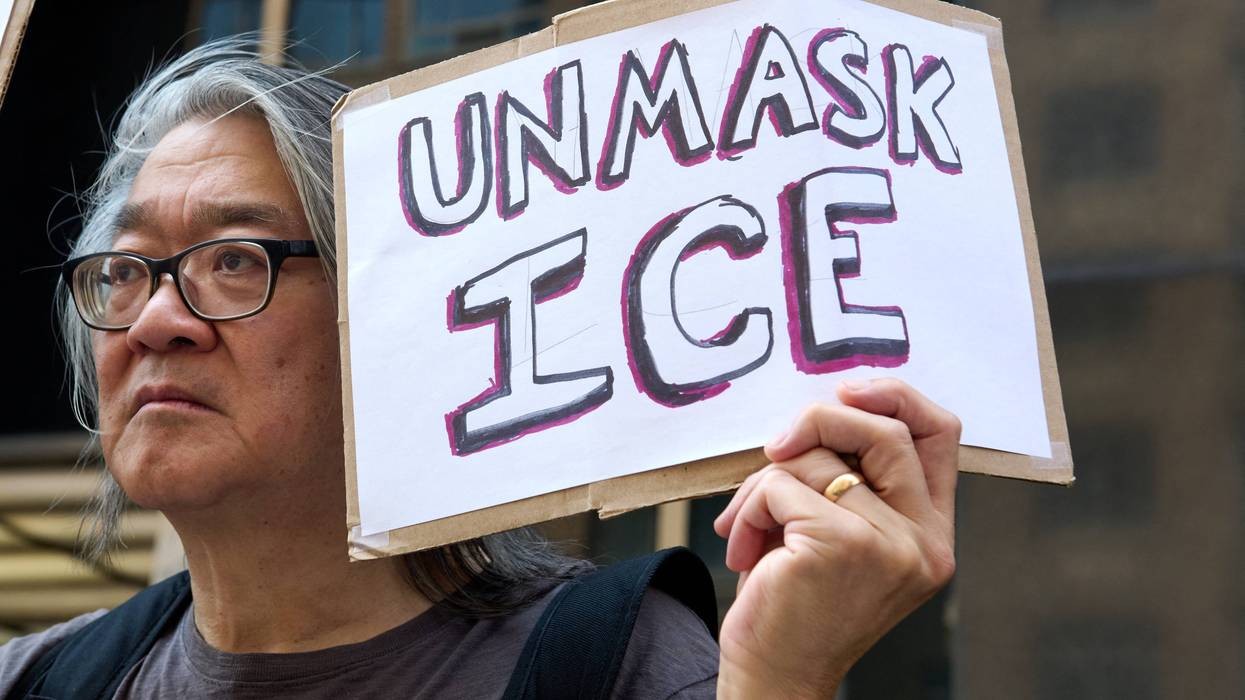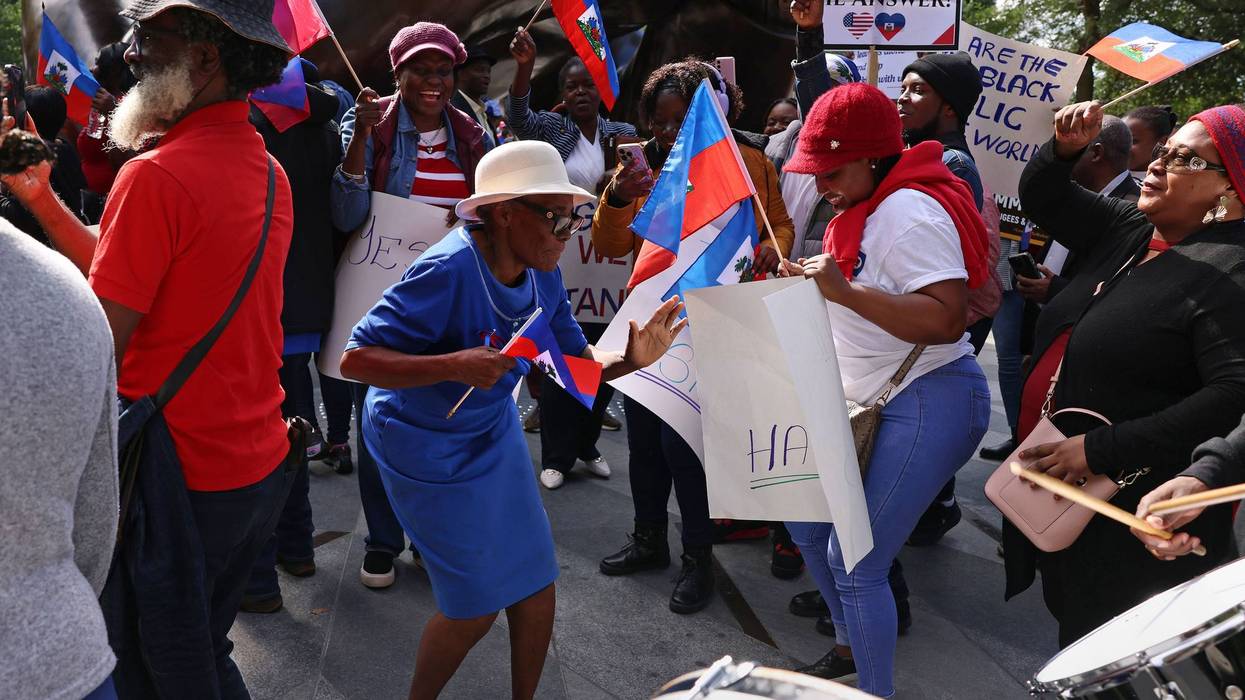In one song, Charlemagne praises those who "unmask the wrongdoers" (demaske malpwopwete). In another, he scoffs at the bands of thinly disguised paramilitary cowards (yon bann fov mal maske). He might have been riffing on the Declaration of Independence's complaint about a king who sends "Swarms of Officers to harass our People," quoted last month by the federal judge who ordered the release of a 5-year-old boy and his father from Immigration and Customs Enforcement (ICE) detention in Texas.
Manno, as everyone called him, was Haiti's best-known singer-songwriter and a leading activist in his own country's fight for democracy. I was fortunate to have met him when I worked at Miami's Haitian Refugee Center in the 1990s, and we later translated some of his songs from Haitian Kreyòl to English.
Behind the masks are not just racists, but bullies, and bullies are cowards.
Manno's 1989 "Lamayòt" was written for Carnival, which in Haiti as elsewhere brings new political songs. As Edwidge Danticat explains, "A lamayòt is a mysterious box whose contents are known only to its owner, and which others can see only after they have paid some kind of price. In politics, lamayòt can refer to, among other things, trickery, a sleight of hand, and broken promises."
In "Lamayòt," Manno mocks the military oppressors who promote themselves and make up their own rules, thinking that guns and the power to intimidate make them right. But their masks and smirking, sings Manno, are the only flag they carry, and people see right through their pathetic Mardi Gras disguise: "Lan fè grimas se drapo nou pote... Pou mwen nou pa menm madigra k mal maske."
Despite a push from activists, and with Democrats following their lead, agents are sure to keep their masks on. Yes, it's to protect themselves—from accountability. ICE and the Border Patrol have always aspired to lawlessness, and under President Donald Trump they have moved further than ever in that direction.
In California this month, a judge ruled against a state prohibition on federal agents hiding behind masks, but only because the law doesn't also apply to state law enforcement. In response, State Sen. Scott Wiener has said he will push for a law that covers all officers. Wiener's statement could be from a Carnival song: "We will unmask these thugs and hold them accountable." The Field Office Director for ICE Enforcement and Removal (ERO) in San Francisco had told the court that the law should be struck down because"DHS does not intend to comply" with it.
Agents claiming to enforce the law—even when they actually do so—are violating federal law by refusing to identify themselves: "At the time of the arrest, the designated immigration officer shall, as soon as it is practical and safe to do so, identify himself." The city of Santa Ana has actually passed a resolution suggesting that the federal government follow federal law.
The Trump administration also claims that federal agents can give themselves permission to break down your door and check your papers or abduct you, though that's not how "permission" or warrants work. The Associated Press reports that the latest in Department of Homeland Security (DHS) "ruses" includes the use of false license plates in violation of Minnesota law, and the impersonation of local police, construction workers, and utility workers.
Behind the masks are not just racists, but bullies, and bullies are cowards. That's why their bosses keep saying how brave they are while whining about their victimhood. In the first Trump administration, DHS Secretary John Kelly complained that his agents "are often ridiculed and insulted... and frequently convicted in the court of public opinion on unfounded allegations." In November, a deputy chief of Border Patrol told a California court that agents wear masks and "remove their badges, nameplates, or unique identifiers" because "incidents across the nation have created an atmosphere of fear and uncertainty" for them.
A Burmese-American named Ba Zan Lin spent 18 years "living under dictatorship and tyranny" in his native country. Last year he told a Buffalo (New York) audience, writes Geoff Kelly in the Investigative Post, "that the measures taken by ICE agents to conceal their identities—unmarked vehicles, face masks, no badges or name-tags—indicates their authority is vulnerable to challenges by ordinary citizens."
"'As long as they're still wearing masks, they're still afraid of us,'" Lin said.
"What you do to scare me only excites me," sang Manno Charlemagne. "Masked man, I'm not afraid of you. You're only a person."




